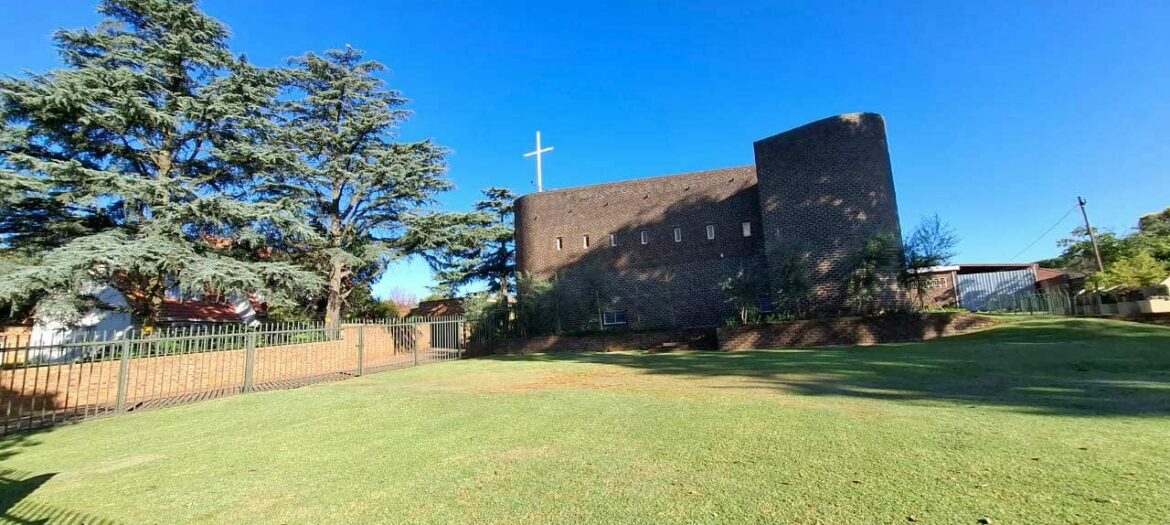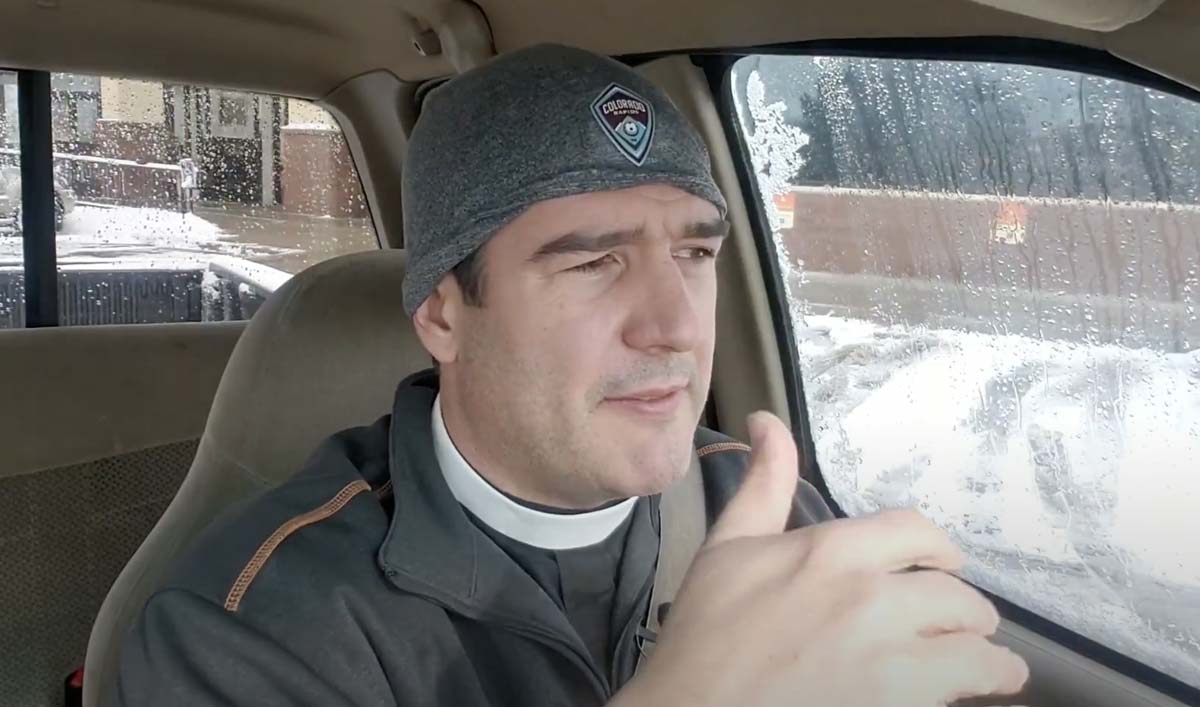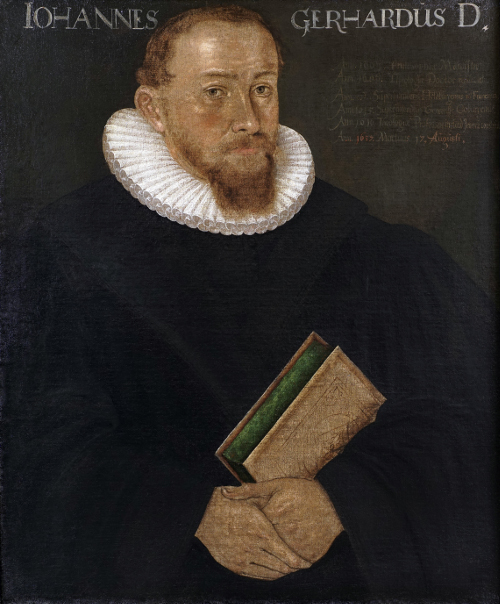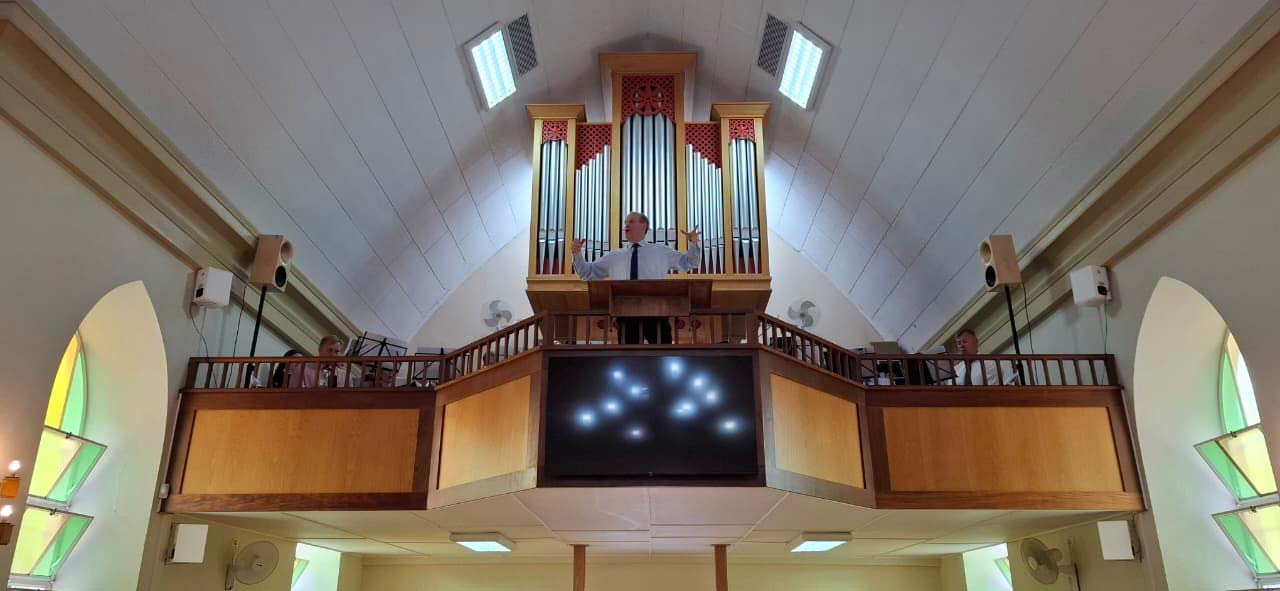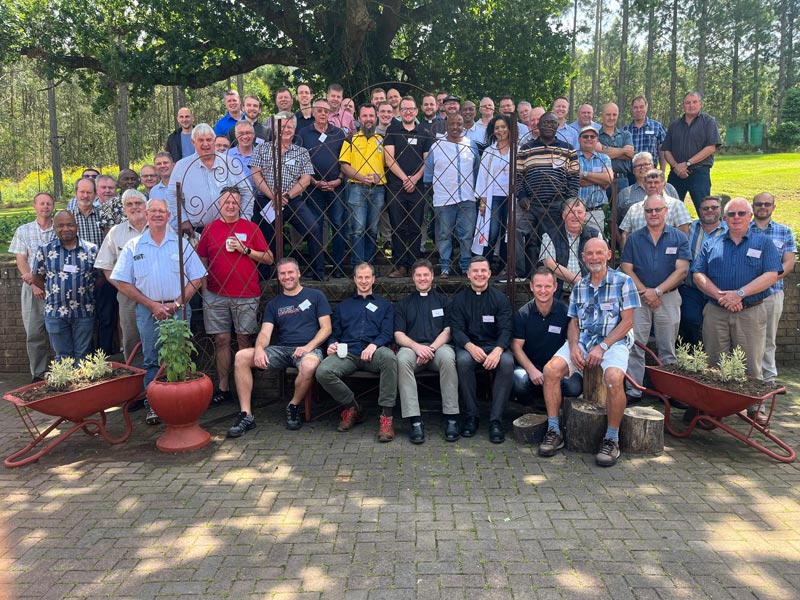Philip Wortmann, Newcastle
The 45th Pastors’ Convention convened on the grounds of St. Paul’s Evangelical Lutheran Church, Fairland, from the 5th–8th of May. The participants were graciously hosted by congregation members, and ate breakfast at their respective lodgings. All of the official sessions, from presentations to work groups, were held in the church hall, while meals were served at the old age home on the neighbouring property. Devotions on various passages were held in the church building every morning and evening to begin and conclude proceedings in the name and under the blessing of God.
The topics discussed were: church leadership structures as they had been addressed at the church councillors’ retreat at FELS in late 2024; ecumenical guidelines that serve to give clarity on and provide a framework for combined church services with congregations that are not in fellowship with the FELSISA; the official role of the Lutheran Service Book Agenda (LCMS) in the practice of the English-speaking congregations of the FELSISA; the wording and implementation of a proposed new model Communion statement in the liturgy of Holy Communion; the relevant issue of gender dysphoria, its dangers, and how to care for those affected in a pastoral and truthful way, presented by Pr. Werner Straeuli; the bioethical issue of abortion in South Africa, presented by Pr. Thomas Beneke; and the relationship between confession and absolution services and Holy Communion.
On Tuesday, after an exegetical workshop on Proverbs 8:22–36, presented by Pr. Thomas Beneke, the Pastors’ Convention hosted Prof. Dr. Werner Klän from the SELK, who presented on “Being Concordia-Lutheran (also in South Africa)”. In his presentation, Prof. Dr. Klän stressed the fact that the Augsburg Confession, in concord with the other Confessions, seeks to be a truly catholic (i.e. universal) document, in which the unity of the true Church of Christ is sought and expressed. As a result, this document lays a significant foundation on which discussions with all Christians who lay claim to the name of Christ and to membership in His Church can be had. In these conversations, both Scripture and the local cultural context play a significant role in determining both what is true and what is appropriate in the given situation. An appeal was made that the FELSISA not withdraw into a confessional ghetto, but recognise the responsibility it has within Africa to seek that unity with other churches, without sacrificing the foundation of its Confessions. After this, Pr. Klaus-Eckart Damaske presented on “Cruciformity: The cross you bear, bears you”.
Due to the increasing partnership between the MLC (Mission of Lutheran Churches) and the FELSISA, the Pastors’ Convention also invited missionaries Christoph and Peter Weber. Peter, as the mission representative, presented on the work that is currently being done under the umbrella of the MLC, focusing on the way in which the MLC can help coordinate the mission efforts of the FELSISA.
On Wednesday, Bishop Helmut Paul led a discussion on the importance of regular visitations in our congregations. These visitations by the bishop primarily serve a pastoral function, in which a third party can both bring a new perspective into the situation of a congregation, and participate in the joy of fellowship. Finally, the psychological and general health care of pastors was discussed, especially in light of the tragedy involving Pr. Roland Johannes.
We thank the St. Paul’s congregation for their hospitality, and our heavenly Father for His protection on our travels.
